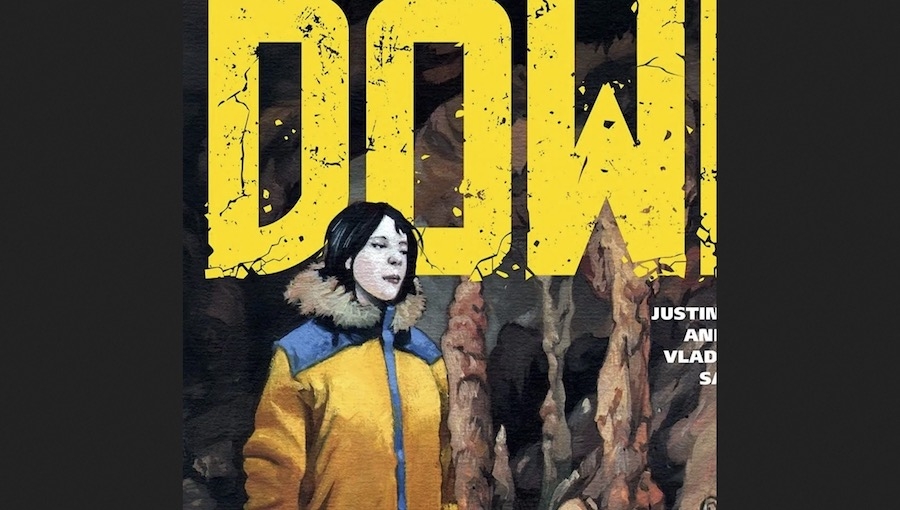I first reviewed the first issue of Starship Down in March 2020 and was really excited by the concept and execution. Alas, due to the COVID-19 pandemic, the subsequent individual issues were canceled, with Dark Horse opting to collect the entire series into a trade instead.
For the uninitiated, Starship Down is a sci-fi series about the discovery of an extraterrestrial space craft in Siberia, and the existential and philosophical/religious implications of that discovery. The leads generally represent the different invested factions, and the limited series does well giving each one enough context and skin in the game to be believably invested in the monumental discovery. It’s perhaps worth noting here that despite the rather otherworldly setting of Vanavara (Siberia might as well be Mars, IMO.) and the evidence of intelligent extraterrestrial lifeforms, Starship Down is ultimately a story that’s very focused on humanity and its messy complexities, including geopolitical tensions, interfaith discourse, and the seemingly disparate precepts of science vs. religion. That is to say that this is very much more in the vein of more contemplative science fiction a la Arrival than it is Independence Day.
Justin Giampaoli’s 4-issue arc does a remarkable job of building up the tension and resolution in unexpected ways, and I do wish that the series could have been a bit longer to really let some of the moments truly bloom. The story feels a bit compressed at times, but it is effectively told, nonetheless. As a biologist, I do wish that there was a bit more emphasis on how Neanderthals are not simply our ancestors but rather one of the many early human lineages that overlapped temporally and geographically with early modern humans, leading to some amount of interbreeding. (For more on that, check out Who We Are and How We Got Here: Ancient DNA and the New Science of the Human Past.) That quibble aside, it is heartening to see more female representation as experts in their field, especially in the STEM fields. #StoriesMatter because representation in stories is how we encourage minorities in any field to consider those possibilities for themselves, and we still have so much work to do to in that regard.
Andrea Mutti’s work is fantastic, especially in the interpersonal moments between characters; the natural body language comes across as genuine, and it boosts the interpersonal drama of the work. The stark environments are nicely complemented by Vladimir Popov’s colorwork, conveying the freezing atmosphere at just about every turn. Popov’s work on the holograms is also beautifully rendered, lending a truly alien feel to the images. Sal Cipriano’s lettering reads easily, and the emphasis points are subtle enough, allowing for true moments of dramatic tension to really stand out.
Overall, this was an enjoyable series that leaves us with so many new questions and some lingering old ones that it really does beg for a sequel.
Creative Team: Justin Giampaoli (writer), Andrea Mutti (artist), Vladimir Popov (colorist), Sal Cipriano (letterer)
Publisher: Dark Horse Comics
Click here to purchase.

